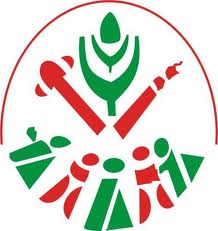/topics/equity
Equity
Impact report of watershed development programme in Ayyannapalem village of Guntur district in Andhra Pradesh
Posted on 19 Mar, 2012 11:59 AMAuthor : Kotikala Chandrasheakar
Name of the watershed: Ayyannapalem
Name of the Mandal: Bollapalli
District: Guntur
Best meal of the day': Akshaya Patra's kitchen in Nathwara, Rajasthan is the newest of its high-technology ones across India
Posted on 19 Mar, 2012 10:23 AMArticle and Image Courtesy : One World South Asia
Author : Madhusmita Hazarika
The seed map - food, farmers and climate chaos: Shows the state of global agro-biodiversity today
Posted on 06 Mar, 2012 06:38 PMArticle Courtesy : Seedmap
Rashtriya Jan Sansad, March 19 - 23, 2012, New Delhi
Posted on 29 Feb, 2012 04:14 PMOrganization: Rashtriya Jan Sansad / National People's Parliament

Description:
India, our country, is today at the crossroads. Despite our intense and diverse human, natural, cultural and technological resources the Constitutional endowments of freedom, equity and justice appear to be a distant dream. On the one side a small group of people have never had it so good with top class infrastructure, privately run airports, relatively cheap air travel, fast moving cars, obscenely high salaries and the promise of a 9 % growth. On the other side the conditions of the majority continue to deteriorate: farmers' suicides; large scale displacements; the use of police and para-military forces to appropriate Adivasi lands, forests and resources and and resistance to this faced with brutality and murder; dis-employment of the urban poor due to infrastructure projects; mega corruption scandals in every development project. But of course this is of no interest to the media! Corruption in its current form seems to be so institutionalised in character and monstrous in proportion as to make past scandals look like petty deeds. Are these stories of some other land or of our own?
Inducing vulnerabilities in a fragile landscape: The implications of hydropower development in a seismically active zone - An article in EPW
Posted on 24 Feb, 2012 08:25 PMClose to 30 hydroelectric projects are being planned on the Teesta and its tributaries. Not only is this river an essential part of Lepcha identity and life, but it also flows through a fragile zone. In this article first published in the Economic and Political Weekly (EPW), Kanchi Kohli examines the ramifications of this policy.
Challenges for achieving conservation and development - A presentation by Elinor Ostrom at the Khoshoo memorial lecture, ATREE
Posted on 22 Feb, 2012 06:52 PM
Framework for valuing ecosystem services in the Himalayas - An ICIMOD technical report
Posted on 17 Feb, 2012 12:12 PMThis has been a generic first attempt that can be fine-tuned and customised for each type of ecosystem and each kind of service value. Ecosystem services are defined by the Millennium Ecosystem Assessment as ‘the benefits people obtain from ecosystems'.
Mountains occupy 24% of the global land surface area and are home to 12% of the world’s population. Mountains have an ecological, aesthetic, and socioeconomic significance, not only for those living in the mountain areas, but also for people living beyond them. However, the importance of ecosystem services arising from mountains is not properly recognised. The HKH region is endowed with a rich variety of gene pools and species, and ecosystems of global importance. It is a storehouse of biological diversity and a priority region in many global conservation agendas. The region has many unique ecosystems that play a critical role in protecting the environment and in providing livelihoods for much of Asia and beyond.
Adapting to climate change - Conserving rice biodiversity of the Apatani tribe in North East India - An IGREC working paper
Posted on 15 Feb, 2012 11:47 PMIt also deals with the threat to the biodiversity in the area due to climate changes and argues for the need to devise adaptation strategies at an urgent level to preserve the unique genetic variability of the region and the indigenous knowledge of farming practices in the area.
Water conservation, sustainable agriculture, challenges for rural development in Maharashtra and possible solutions - Talk by Popatrao Pawar, Sarpanch, Hivre-Bazar
Posted on 09 Feb, 2012 04:49 PMShri Popatrao Pawar is an inspiring promoter of the 'Ideal Villages Movement' on "Integrated Agriculture and Rural Development for Tomorrow's Maharashtra" on the occasion of the inauguration of Observer Research Foundation's Maharashtra@50 Study Centre on 24th June 2010.
Community monitoring in water and sanitation projects - A facilitators manual by PRIA
Posted on 02 Feb, 2012 11:59 AMThis manual is based on the work that PRIA was involved in that included facilitating the process of social development and monitoring, and for guiding the process of developing models for community monitoring linked to community action, for child survival and development in six project sites in India.
This manual is divided into three key sections:




